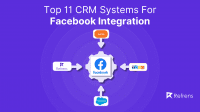According to the Hurun Global Unicorn List 2020, India currently has 21 Unicorn startups that are collectively valued at USD 73.2 billion. By 2022, the number of unicorns in India might surpass 50.
The USA has 233 unicorn startups, while China has 217 unicorns at present. They collectively account for 78% of the world’s unicorns. The UK stands at the 3rd position, while India is at the 4th position following them.
Indian Unicorn Startup Market
India is the 3rd largest startup ecosystem in the world. India in 2012 had only one unicorn startup and post 10 years in 2022 India will have about 52 unicorn startups, according to Omkar Rai, Director-General, Software Technology Parks of India (STPI).
India this year has added 3 new unicorns to the list. The average age of Indian Unicorns is 7 years old, out of which 2 are less than 4 years old. Examples of certain Unicorn startups in India include Flipkart, PayTM, Oyo and Razorpay. Out of the total share of the Indian unicorns, PayTM covers around 22% of the total valuation share of the unicorns with USD 16 billion.
As per Mr. Omkar Rai, Indian software products revenue will be USD 70-80 billion by 2025 in comparison to the existing USD 10 billion. India stands the chance to be successful in the USD 520 billion global software products market considering the Indian tablets and cost arbitrage. By 2025, the global software products market is expected to become a trillion dollar market.
What is a Unicorn Startup?
Any privately-held startup whose valuation reaches USD 1 billion or more is referred to as a Unicorn in the venture capital industry. The concept of valuation may be uncertain and dependent upon transaction opinions but holds importance in the light of investment.
Unicorns portray special characteristics that make them stand out and achieve a milestone:
- Staying ahead of competitors
- Keeping up with disruptive innovations
- Following tech based business model
- Bigger valuation as privately owned
- Consumer focused: Creating a necessity by targeting the way people do things
- Ensuring consumer affordability
The term unicorn is used to indicate the rarity of these startups. However, now the number of unicorns is increasing.
Read more about the news here.

















